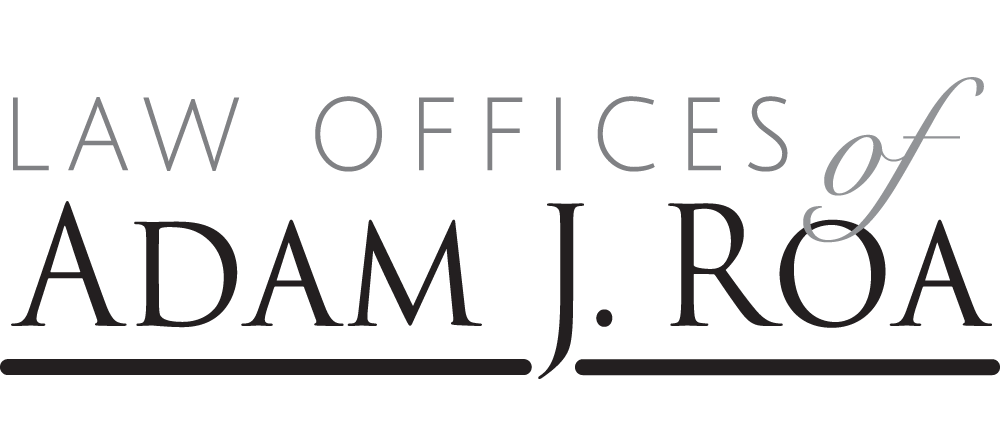
Medicaid
Transfers into a Nursing Home
With the major Medicaid (i.e., Medical Assistance in Maryland) changes caused by the enactment of the Deficit Reduction Act and adoption by Maryland, the opportunities for making a mistake and the severity of the penalty increased dramatically. An action, innocently taken within five years of applying for Medicaid, can have dramatic consequences regarding eligibility.
What happens if the application for Medicaid is denied? Who then will pay for the nursing home care? If the nursing home moves for an “involuntary discharge” what right does the nursing home resident have? If the application is denied, what can be done?
What can be done beforehand to preserve a nursing home resident’s assets for the spouse living in the community or set aside funds to pay for things Medicaid will not pay?
What happens if the care at the nursing home results in injury or death to my parent? What happens if my parent cannot sign the nursing home contract? Should I sign the contract?
Call now (410) 296-8166 x292.
Asset Protection
The high cost of medical care and nursing home care can wipe out everything that a person has worked hard for, saved or acquired over the course of a lifetime. With an average nursing home cost between $9,000 – $12,000 per month in Maryland, an individual’s or a couple’s savings may be consumed in a manner of a year or more.

Because of the severe negative consequences of acting incorrectly, significant advance and careful planning is necessary to avoid a situation where you or your loved ones have to sell your parent’s assets just to pay for their medical or nursing home care. Significant asset protection can be accomplished with the help of an experienced elder law lawyer.
“Mr. Adam J Roa, will help people in Maryland to protect the assets of their estate from the high costs of health care and nursing home needs.” We do this through careful planning and through the use of effective asset protection strategies. However, the important thing to remember is that the planning to preserve assets can even happen after your parent enters the nursing home.
Medicaid Mistakes
1. Thinking that it is too late to plan.
It’s almost never too late to take planning steps. A family can still plan even after a loved one has moved to a nursing home.
2. Applying for Medicaid too early.
This can result in a longer period of ineligibility in some instances.
3. Applying for Medicaid too late.
This can result in the loss of many months of eligibility and additional out-of-pocket costs that can easily reach tens of thousands of dollars. Such a disaster could have otherwise been avoided with careful planning.
4. Not getting expert help.
Medicaid eligibility is an extremely complicated field that most people deal with only once in their lives. Tens of thousands of dollars or more, hidden dangers, and unintended consequences are at stake for the ill informed. It’s penny wise and pound foolish not to consult with an elder law attorney to seek guidance through the Medicaid maze.
5. Failing to recognize the protections afforded the spouse of a nursing home resident.
These protections may include, for example, purchasing a qualified immediate annuity, petitioning for an increased community spouse resource allowance, investing in upkeep of the house, and keeping the maximum amount of assets allowed.
6. Ignoring important safe harbors created by Congress.
Certain transfers are allowable without jeopardizing Medicaid eligibility. Such transfers include: transfers to disabled children, caretaker children, and certain siblings.
Medicaid Eligibility
Individuals seeking Medicaid Long Term Care services must meet specified technical, medical, and financial eligibility requirements. The technical criteria includes proof of US citizenship, Maryland residency, and suffering from a defined disability (i.e. if you are over the age of 65 you are deemed disabled in the eyes of Medicaid).

Medical eligibility is determined through an application and assessment process in accordance with medical criteria established by Federal law and implemented by the State of Maryland. It is a five part test with the critical factor being does the parent need “skilled nursing care.”
Financial eligibility is determined by examining the “countable assets” of both the Medicaid applicant and community spouse. The applicant can have no more than $2,500 in “countable assets” and the community spouse no more than $123,600 in “countable assets.”
The issue of determining if an asset is countable or non-countable (or exempt) requires a thorough knowledge of the ever changing arena of Medicaid law. The area of Elder Law, and especially Medicaid law, is like the “wild west” of the legal world. It is not fully developed, changes rapidly, is full of dangers and most importantly, there are big opportunities.
How medical eligibility will be determined: Clinical determination of Nursing Facility Level of Care and eligibility for waiver participation will be determined by an in-person assessment by a registered nurse or physician typically associated with the nursing home. The nurse or physician will use a comprehensive, objective assessment instrument approved by the Department of Health and Mental Hygiene and is normally be scheduled shortly after it is known that the family will applying for Medical Assistance. Assessments will be conducted at the applicant’s current location. The exam itself is relatively inexpensive and there usually is a quick turn around time between assessment and determination of medical eligibility.
Medicaid Appeals
Medicaid Fair Hearings can be a very confusing and intimidating process. Although traditional court rules of procedure and evidence are followed, the hearing officer will frequently allow both sides latitude to enter all relevant evidence into the record. The appeals representative will use all available information and county resources to support their finding of non-Medicaid eligibility.
It is absolutely critical that an experienced elder law attorney address the complex Medicaid Rules in a straightforward and convincing way to the administrative law judge. The ruling of the administrative law judge is limited to whether or not the Medical Assistance denial complied with Federal and state rules and regulations.
The appeal process does not end with the ruling of the administrative law judge. If appealed, this ruling goes before the Board of Review. Here, the appeals are almost universally denied. The next step is the appeal to the Circuit Court or Federal District Court. Our office handles all levels of appeal to assist clients who have been denied Medicaid or other public benefits. Our work includes both appeals at the administrative level, and more formal proceedings in state or federal court. While some cases are settled without court intervention, we have the experience to take cases to the highest levels of review if necessary.
Nursing Home Contract Review
We review the nursing home contract before it is signed. Do not let the nursing home pressure you into signing the document as a condition of letting mom or dad into the facility. Do not be fooled into being told that it is ok for you to sign. Ask the nursing home to fax it to your elder law attorney first. This is a perfectly normal and smart request to make. A properly run nursing home should have no problem faxing or immediately delivering the contract to an elder law attorney’s attention.

If the Medicaid application has been denied, there is no question that the nursing home is going to be looking for immediate payment. They will first look to see who signed the nursing home contract. Let our office help you through this process and avoid the emotional turmoil of going through an involuntary discharge or through collection efforts undertaken against you.
The regulatory rules governing Medicaid and the Medical Assistance program in Maryland are ever changing. The risks of making a mistake are high and the consequences of such a mistake can be devastating. Let us guide you through the process and provide that peace of mind knowing that your have an elder law attorney at your side.
Nursing Home Issues
Can there be a more difficult job than finding a nursing home for a parent or spouse? Nursing homes serve as institutions of last resort when it is impossible or impractical to provide the necessary care in any other setting. And, typically, the search takes place under the gun—when a hospital or rehabilitation center is threatening discharge or it is no longer possible for the loved one to live at home. Finally, in most cases, finding the right nursing home is a once-in-a-lifetime task, one you are taking on without the experience of having done it before.
That said, there are a few rules of thumb that can help you:
Tour the nursing home. Try not to be impressed by a fancy lobby or depressed by an older, more rundown facility. What matters most is the quality of care and the interactions between staff and residents. See what you pick up about how well residents are attended to and whether they are treated with respect. Also, investigate the quality of the food service. Eating is both a necessity and a pleasure that continues even when unable to enjoy much else. It is also advisable to try and get a tour of the facility that is not prearranged. While this is not always possible, it does give you the opportunity of seeing an unrehearsed atmosphere.
Location, location, location. No single factor is more important to quality of care and quality of life of a nursing home resident than visits by family members. The quality of care is often better if the facility staff knows that someone who cares is watching and involved. Visits can be the high point of the day or week for the nursing home resident. So, make it as easy as possible for family members and friends to visit.
Get references. Ask the facility to provide the names of family members of residents so you can ask them about the care provided in the facility and the staff responsiveness when the resident or relatives raise concerns.
Check certifying agency reports. CareScout is an unbiased source for ratings and reviews of eldercare providers nationwide. Detailed, 7-10 page Nursing Home reports are available for a small fee, and include over 100 pieces of information on quality, resident population profiles, and health violations. Another source for nursing home reports is HealthGrades. For a fee, HealthGrades will provide you with a report that rates the nursing home and provides information on inspections and complaint investigations. You can also get a report that compares the nursing homes in your area.
Talk to the nursing home administrator or nursing staff about how care plans are developed for residents and how they respond to concerns expressed by family members. Make sure you are comfortable with the response. It is better that you meet with and ask questions of the people responsible for care and not just the person marketing the facility.
